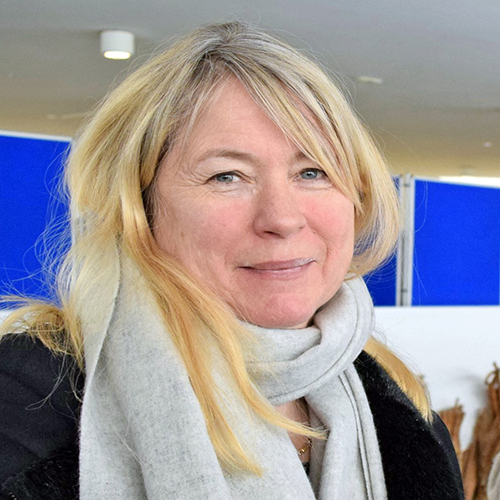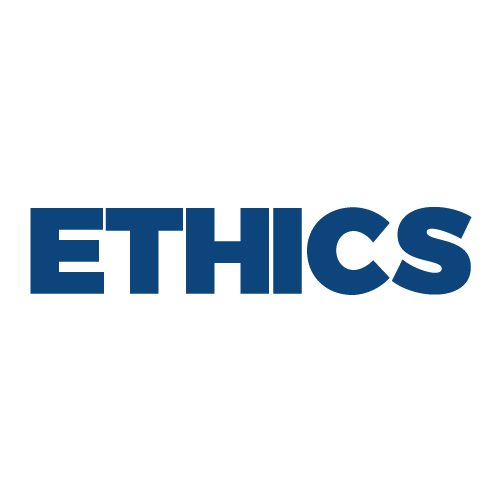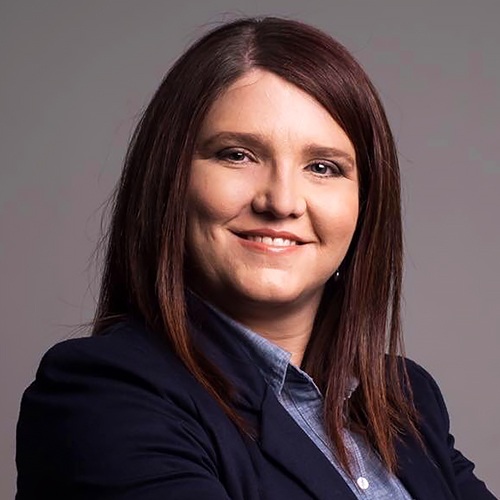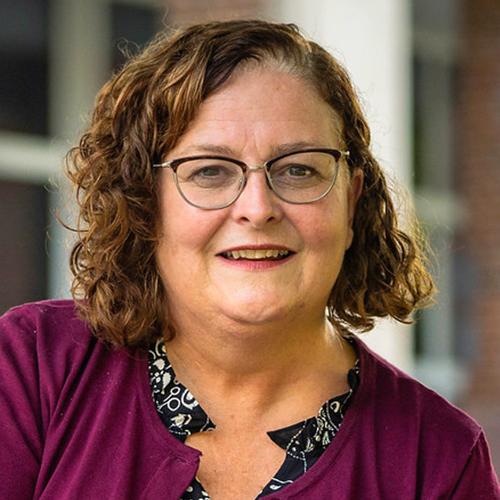 IBCLC Detailed Content Outline: Development and Nutrition Focused CERPs - Section I
IBCLC Detailed Content Outline: Development and Nutrition Focused CERPs - Section I
Access CERPs on Development and Nutrition for the IBCLC Detailed Content Outline recertification requirements. Enjoy convenient on-demand viewing of the latest Development and Nutrition focused IBCLC CERPs at your own pace.
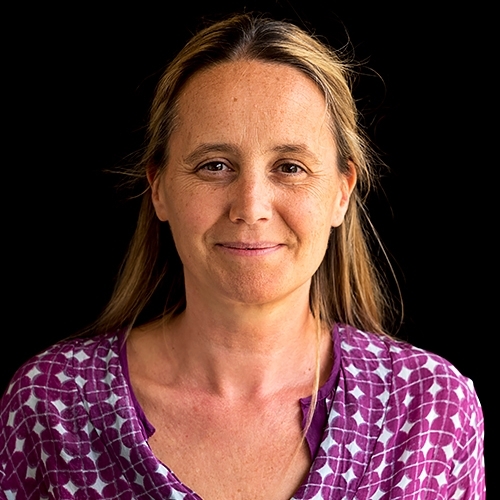
Early Vocal Contact Between Parents and Preterm Infants in the Neonatal Intensive Care Unit

Manuela Filippa is researcher at the Geneva University. She received her PhD in Developmental Psychology at the University of Paris Ouest Nanterre, she studies the effects of the Early Vocal Contact - maternal direct speech and songs - on premature infant’s development in collaboration with international research centers. She is a Musician by training, she teaches Psychology of Music and Music Education at the University of Valle d'Aosta, Italy. She became an expert in the field of early interventions in at-risk populations. Her scientific works were published in a number of international journals, in a dedicated book on Early Vocal Contact and, lastly, in a Special Issue of National Geographic, January 2019.
Early Vocal Contact aims to enhance closeness between preterm infants and their caregivers, principally through the medium of the voice. The specific aims of this presentation are;
(1) to give evidence the special orientation that newborns have towards the maternal voice;
(2) to explore the literature on the effects of the maternal voice on preterm infants in the neonatal intensive care unit;
(3) to identify and to describe the mechanisms through which early vocal contact acts as an early, family-based intervention for preterm infants and;
(4) to suggest some final recommendations for clinical practice.
Encouraging live vocal contact, with preterm infants, far from being only a sensory/acoustical stimulation, can activate a number of related and consequential actions (intuitive parenting, multimodal co-regulation, reciprocal synchronisation). These normal actions in full-term birth are at the foundation of bonding and attachment processes and can lead to long-term and sustained positive effects on the development of preterm infants.

View Details / Enroll
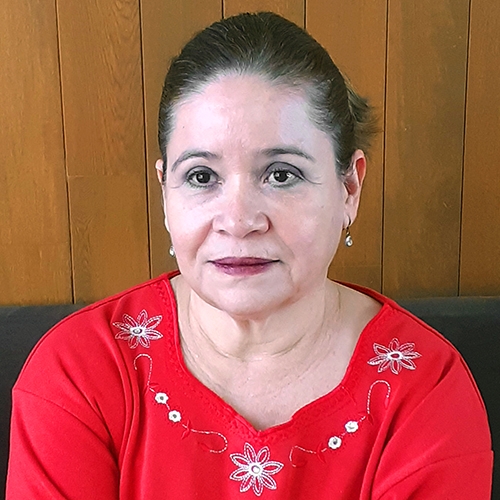
Effect of the Spray Drying Process, High Pressures, and Radiation on the Nutritional Quality of Human Milk

Dr. Blanca Aguilar Uscanga is a Biochemical Engineer in Food Science and has a Masters in Food Science. She graduated from the Institute Technologic of Veracruz (ITV) México. She completed her doctoral studies in the specialty of Biotechnology at the National Institute of the Sciences Appliqués of Toulouse in France.
She is currently a full-time research professor (since 2006) at the Centro Universitario de Ciencias Exactas e Ingenierías (CUCEI) de la Universidad de Guadalajara. Dr. Aguilar Uscanga is adjunct professor to the Department of Pharmacobiology, where she teaches courses of Applied Microbiology, Biotechnology and Food Science to undergraduate and PhD students.
She is a member of the National System of Researchers in Mexico recognized by CONACYT, with level 2. The research areas are: Food Biotechnology and Microbiology, which cover different areas of research such as: Obtaining bioactive compounds and metabolites of industrial importance through of microorganisms, production and development of functional foods, fermented beverages, probiotics, prebiotics and food safety.
She has international collaborations with the Institute Armand Frappier, Canada and the Institut sur la nutrition et les aliments fonctionnels (INAF) in Québec. Currently she is member of INRS and has an honorable mention of “Professeure associée” provided by the INRS- the Institute Armand Frappier in Laval, Canada.
Human milk is the first food that the newborn receives and provides all the nutrients necessary for its growth. In order to feed children with breastfeeding problems, Human Milk Banks (BLH) were implemented, which conserve this food through pasteurization and freezing processes. Because human milk is very perishable, this work will present some results obtained on spray drying, high hydrostatic pressures, and UV radiation in human milk, in order to preserve and avoid loss of nutrients in this food, as well as offer a new alternative to the BLH for its conservation.

View Details / Enroll
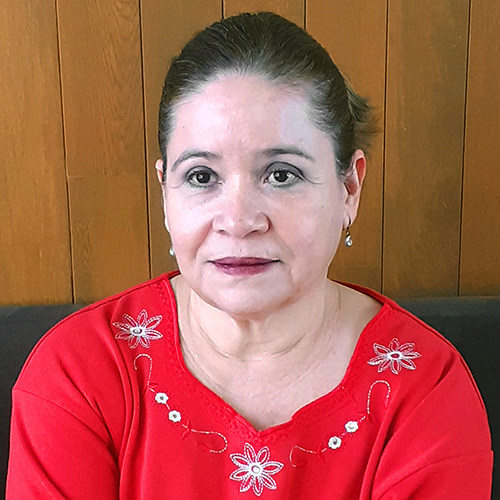
View Details / Enroll
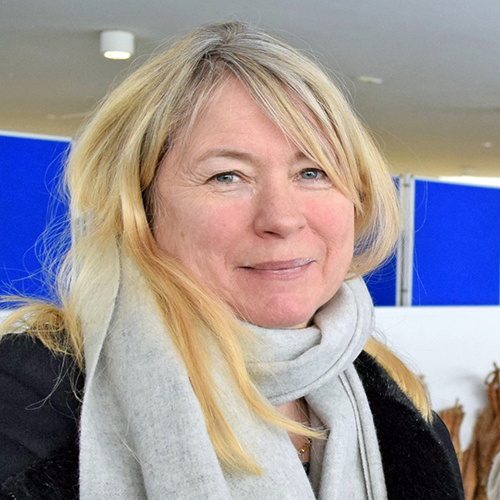

Merete Eggesboe, MD and an environmental epidemiologist at the Norwegian Institute of Public Health, is dedicated to understanding the role of the microbiome and environmental toxicants in children’s health. In order to do so she initiated the prospective HUMIS & NoMIC birth cohorts, encompassing more than 2600 mother-child pairs where the gut microbiome and toxicant exposure has been mapped in human milk and fecal samples. She has now followed them for 18 years and the longitudinal extensive data collection provides a wealth of research opportunities. It has also been linked to the Norwegain Patient Registry where all specialist diagnosis set on all research subjects are available. The focus so far has been on understanding their role in reproductive health, growth/obesity, neuropsychological functioning and vaccine immune responses. Recent studies have also looked at how toxicants in human milk may affect the infant’s microbiome. And vice versa: how our gut microbiome affects the metabolism of toxicants. She has been cited >6000 times over the last 5 years and has an h-index of 51 and has published more than 100 peer-reviewed papers. She is a popular speaker, leads several prestigious Norwegian Research council programs and participates in several EU projects.
According to a recent WHO/UN report, synthetic chemicals are a threat to human health. Persistent Organic Pollutants (POPS) are of special concern to humans since they bioaccumulate and biomagnify. Species on the top of the food chain pyramid such as humans are thus among the most heavily exposed. POPS is a group of chemicals compromising PCBs, DDT, Dioxin, Organic Pesticides, flame retardants, as well as the more recent contaminants perfluorinated compounds. They are ubiquitous in air, water and soil, food and humans. In spite of DDT being forbidden more than 40 years ago, both DDT and its metabolite DDE, are still found in breastmilk. This demonstrates the long legacy of these chemicals. The child is exposed to the mother's accumulated levels while in the womb since most of these chemicals pass to the uterus unrestricted, and through breast milk. In spite of declining levels of forbidden POPs we demonstrate that perinatal exposure to POPs are associated with adverse effects on infant health. Large multi-cohort studies encompassing many thousand mother-child pairs report adverse effects of these chemicals on growth and neurodevelopment, with an increased risk of obesity and behavioral disorders among those most heavily exposed.

Equity and Safer Infant Feeding in Times of Disaster and Civil Unrest

Lourdes Santaballa is a community activist and organizer, with a background in domestic violence, affordable housing, and economic equity advocacy. A La Leche League leader from 2009-2017 and IBCLC since 2011, she was the founder of the lactation program at sePARE, providing coordinated services to low income families, leading it to receive the ILCA Care Award and received the Wilson-Clay Hoover Award for Research. Lourdes received the notorious Drs. Ruth Lawrence and Audrey Naylor Legacy Scholarship in 2016 by the United States Breastfeeding Committee, the Miriam H. Labbok Award for Excellence at the Breastfeeding and Feminism conference in 2018 and is currently completing her master’s degree in clinical nutrition. In October 2017, following Hurricanes Irma and Maria, Lourdes founded Alimentación Segura Infantil or ASI, an Infant and Young Child feeding program focused on increasing breastfeeding, leadership and training in marginalized communities in Puerto Rico.
In times of civil instability and changing global climate, we risk natural disasters, infrastructure failure, terrorist situation, police brutality, mass migration, chemical accident, war or other type of emergencies. Infants and young children under the age of 2 are the most vulnerable due to their dependence on adults for survival and their delicate physiology. We know that lactation in emergencies saves lives, yet the unrest that occurs in the days immediately after the disaster may contribute to premature weaning. At the same time, many babies are not breast or chestfed at all or only partially. This session will explore the methods to preserve breastfeeding, decrease the use of formula and other human milk substitutes, promote relactation, and teach appropriate complementary feeding in a disaster appropriate, low tech and resource limited environment. We will also discuss the colonial and patriarchal of humanitarian relief and how to make equity our focal point.

View Details / Enroll

View Details / Enroll


Pauline Sakamoto's nursing career in milk banking started as a volunteer donor to the Mothers’ Milk Bank in San Jose 35 years ago. Previously, she worked at the County Health Department of San Bernardino as a Public Health Nurse in the largest county in the US covering the Hi Desert. She was also employed by the CA State Department of Health, Fiscal Intermediary Management Division for Medi-Cal. Her experience with the nonprofit San Jose Milk Bank for 35 years included processing and operations, the screening of donors and dispensing of donor human milk for inpatient and outpatient services, administration of the San Jose Mothers’ Milk Bank for over 20 years and concurrently leadership roles in the Human Milk Banking Association of North America. Currently, she serves on multiple committees within HMBANA regarding policies and standards, auditing member banks, and reviews legislative and state statutes on milk banking and lactation. She has been representing HMBANA at the US Breastfeeding Committee for over 9 years and served on the Board of USBC for 6 years. Internationally, in 2012-14, she served on PATH’s Milk Banking Policy Group and continues to work internationally on issues on processing and safety. She has stepped down from the Executive Director position at the Milk Bank in 2019 but continue to pursue her passion on milk banking (half time in the office) and Lactation.
This session will explore the ethical issues of milk collection, priority use and distribution. Currently, there are limited regulations and cultural norms regarding human milk. Is it a human tissue or food? Is human milk a commodity? How does this relate to the treatment of women and their infants? What is the current status of access to human milk and equity of services? What does “safe milk” mean? This session is to explore the current condition of ethical issues surrounding human milk, “liquid gold”…the panacea for life for the most vulnerable in our society.

Evaluation of Assessment Strategies to Reduce Risk Associated With Feeding Intolerance

Dr. Brigit Carter, Associate Professor and Associate Dean for Diversity and Inclusion, joined the Duke University School of Nursing (DUSON) in 2010. From 2015-2018 she served as the Director of the DUSON Accelerated Bachelor of Science in Nursing (ABSN) program. Dr. Carter earned her BSN at North Carolina Central University in 1998, a Master of Science in Nursing Education from University of North Carolina at Greensboro in 2002 and PhD in Nursing from University of North Carolina at Chapel Hill in 2009. She served as project director for two HRSA Nursing Workforce Diversity grants. The current grant, The Academy for Academic and Social Enrichment and Leadership Development for Health Equity II, focus is to increase underrepresented minorities in nursing and understanding of individual social determinants among undergraduate nursing students. Dr. Carter teaches the DNP and ABSN programs.
Dr. Carter's clinical research focuses on nursing care of premature infants (<1500 grams) with feeding intolerance and identification of measurable methods for early detection of feeding intolerance. She continues her clinical practice as a staff nurse in the Duke University Hospital Intensive Care Nursery, where she has 21 years’ experience.
Dr. Carter retired in 1/2018 from the U.S. Navy as a Commander after 28 years of service.
Current methods used to identify feeding intolerance signs/symptoms in preterm infants rely heavily on nurses’ physical assessment and reporting of symptoms to the health care provider (HCP). Feeding intolerance, for the purposes of this discussion, is defined as “experiencing difficulty with the ingestion or digestion of formula or breast milk that causes a disruption in the current enteral feeding plan due to the manifestation of one or more of defined clinical symptoms including gastric residuals (>50% of feeding volume), abdominal distention, appearance of the abdomen (changes in color or suppleness), emesis and changes in the stool (minimal or lack of)” (Carter, 2012). It is critical to evaluate these assessment strategies to determine how reliable they are in identifying progression to feeding intolerance and more serious conditions such as necrotizing enterocolitis. Because the guidelines often vary by institutions, this can often be disadvantageous. However, the literature does provide some very consistent support and agreement on what is considered more reliable non-radiology measures that indicate a preterm infant is progressing to feeding intolerance. In addition, there are well known triggers for feeding intolerance that should be considered. There are also future methods, such as intra-abdominal pressure monitoring, that may be on the horizon for predicting feeding intolerance in preterm infants that are presently used in pediatric and adult populations.

View Details / Enroll


Diane Wiessinger, MS, IBCLC, is a co-author, with Diana West, Linda Smith, and Teresa Pitman, of La Leche League International’s Sweet Sleep Nighttime and Naptime Strategies for the Breastfeeding Family. She is also a co-author, with Diana West and Teresa Pitman, of the 8th edition of LLLl's Womanly Art of Breastfeeding. Other publications include chapters in Genna's Supporting Sucking Skills in Breastfeeding Infants and Smith's The ABC's of Private Practice, and journal articles and essays on latching, lip ties, D-MER, motherhood in other mammals, and breastfeeding language. Diane self-publishes more than 75 breastfeeding handouts for mothers. She has spoken in over 40 states and provinces and in Europe, Asia, and Oceania.
Topic: The Safe Sleep Seven: Middle Ground for Safe Infant Sleep - [View Abstract]
Babies haven’t changed, but our understanding of how they attach to the breast certainly has. A journey through more than 50 years of “skilled help” with breastfeeding, what we thought we knew, what we think we know, and how we’re circling back to our beginnings and some surprisingly simple conclusions.
View Details / Enroll
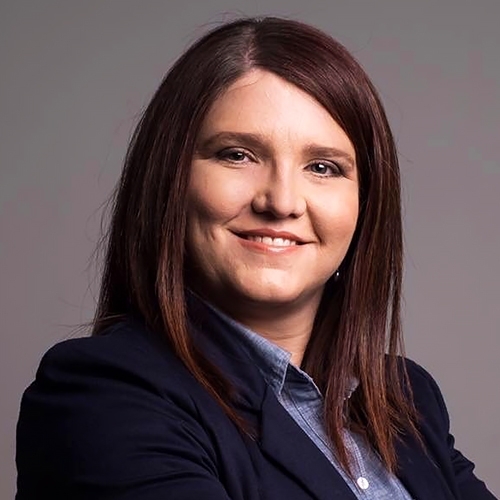

Mari is currently a clinical academic working at Evelina London Children's Hospital in the UK. She is a Clinical Specialist Speech Language Therapist with various international peer reviewed articles on neonatal feeding assessment building on the body of research presented in her PhD. She has presented at various international conferences in the USA, Africa and Europe. Her experience entails paediatric dysphagia in the acute setting with specialization in critical care and neonatal care. In her previous position as an associate professor at a university in South Africa she invested in student clinician training in the NICU setting and access to evidence based treatment for feeding disorders in infancy. Her current research interest is in mobile health application development for the Neonatal Feeding Assessment Scale for international access to a validated neonatal feeding assessment tool to identify oropharyngeal dysphagia in neonates and young infants. In addition her second tier research path is looking at the role of the speech language therapist in PICU. To support the wider clinical and scientific community she is a member of the European Society for Swallowing Disorders as well as an international affiliate member of the Royal College of Speech Language Therapists.
A dearth of validated neonatal feeding assessment instruments are available in an era where medical teams are challenged to demonstrate the evidence base of the services that are provided to neonates. The Neonatal Feeding Assessment Scale (NFAS) was developed to identify oropharyngeal dysphagia with identification of subsequent airway invasion during feeding in neonates. This presentation will take the delegates on a journey through the landscape of evidence, the research process for developing the NFAS and how the NFAS can be used in everyday practice in the NICU to support better feeding outcomes for neonates within their family context.

View Details / Enroll
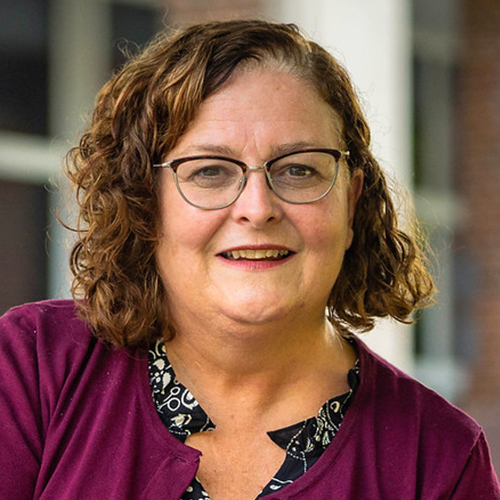

Madge E. Buus-Frank DNP, APRN-BC, FAAN is a nurse practitioner, healthcare improvement scientists and scholar who has been actively engaged in both providing and improving healthcare for nearly 4 decades. Dr. Buus-Frank joined Dartmouth Hitchcock Medical Center in 1990 as one of the first acute care nurse practitioners in the Intensive Care Nursery where she played a pivotal role in building a team of NNPs to serve the Intensive Care Nursery in Lebanon, Nashua, and Manchester. Madge continues to serve as a clinical faculty member in the Department of Pediatrics at the Geisel School of Medicine at Dartmouth and remains invigorated by her clinical practice at the Children’s Hospital at Dartmouth (CHaD) where she has practiced for 30+ years.
Dr. Buus-Frank has been an early innovator on the front lines of developing and testing Learning Health Systems focused on coproducing care with patients and families. as well as improving education and research along the way. In 2019 Dr. Buus-Frank joined The Dartmouth Institute as a Senior Scientist. Her implementation science work currently focuses on a partnership between Dartmouth Hitchcock Health and The Dartmouth Institute, to deliver on the DHH strategic plan, called “The Promise.” She is a co-primary investigator leading a team that is testing the impact of a Learning Health System approach to accelerate co-production of care, to improve the experience of care for our patients and our people and our system. The LHS testing is currently underway in the oncology setting and we will be using whole system measures to evaluate the impact of the Learning health system on patient and family outcomes, cost and value, and research, scholarship and education. Additionally Dr. Buus-Frank serves on a TDI team supporting the Crohn’s & Colitis Foundation’s growing quality improvement collaborative (Qorus) serving as a ead curriculum consultant.
Dr. Buus-Frank is the immediate past Executive Vice President of the Vermont Oxford Network (VON), one of the world’s largest healthcare data and improvement networks in the world. At VON she collaborated with international faculty to conceptualize, design and executed large-scale multi-center quality improvement collaboratives, and massive on-line courses (MOOCs) , bringing >700 hospitals, states and health systems together to learn, share, measure and improve the quality, safety and value of care. Additionally, Dr. Buus-Frank championed and led the development of partnerships with state perinatal quality improvement collaboratives where she built both the common will and capacity to conduct audits and embrace e-based educational implementation packages allowing VON to scale the learning from center level improvement to achieve population-wide results using robust on-line educational technology and learning programs.
Dr. Buus-Frank was the Founding Editor-in-Chief for Advances in Neonatal Care: The Official Journal of the National Association of Neonatal Nurses, a peer-reviewed publication dedicated to advancing the art and science of neonatal care, serving for 5 years in this capacity. She was honored by NANN with a Lifetime Achievement Award in 2021. She is the author of numerous peer-reviewed publications and has been inducted as a Fellow of the American Academy of Nursing (FAAN) for her pioneering work in the field of neonatal care and improvement science.
Join your colleagues for a whirlwind journey of the past 20 years of neonatal care. Together we will reflect on key lessons from the past, identify opportunities to improve care in the present and reimagine how we might provide care to create a preferred future that fosters better health and outcomes for every baby, every time, and everywhere.
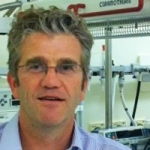
Feeding Preterm Babies after Hospital Discharge: Breast-milk, Fortifier, Supplements and Complementary Foods

Dr Embleton has worked in neonatal medicine for the past 25 years, completing clinical training and a research doctorate in neonatal nutrition in the UK, and a neonatal fellowship in Vancouver, Canada. He has worked as a Consultant Neonatal Pediatrician in Newcastle, UK since 2002, one of the largest UK neonatal units, caring for sick preterm and term born neonates. He leads a broad portfolio of research focused on nutrition and gut health in preterm infants. Areas of work include determining patterns of early gut microbial colonization, and how these may predict the development of necrotizing enterocolitis (NEC) and sepsis. He is a project team member of large neonatal feeding trials recruiting >5000 infants in the UK, as well as coordinating mechanistic studies using microbiomic and metabolomic analyses. He chairs the multi-disciplinary UK Neonatal Nutrition Network (N3) and is a member of the Committee of Nutrition for ESPGHAN.
Topic: Probiotics in Preterm Infants - [View Abstract]
Survival in preterm infants has increased over the last few years, and this has been accompanied by an increasing focus on the importance of nutrition and the effects of preterm birth on later outcomes. Providing nutrition to sick preterm infants in the NICU is complex, and almost all preterm infants are discharged with growth outcomes (weight and length) considerably below their birth centiles. This is important because data show an association between poorer growth and nutritional status in the NICU, and worse longterm neurodevelopmental outcomes. Whilst greater efforts are required to improve nutritional status prior to discharge, the post-discharge setting represents a time period when brain growth is also rapid, and where the potential exists to improve outcome through nutritional interventions. However, the potential benefits of improved brain outcomes need to be considered alongside the possibility of metablic harm induced by excessively rapid growth which may increase risks of obesity and later chronic disease. This talk will consider the continued importance of breast milk after discharge, the potential role of fortifiers and supplements in meeting nutrient requirements, and issues around the timing of introduction of complementary foods.

View Details / Enroll
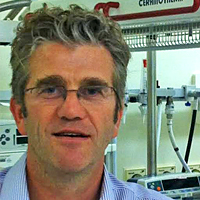
View Details / Enroll





